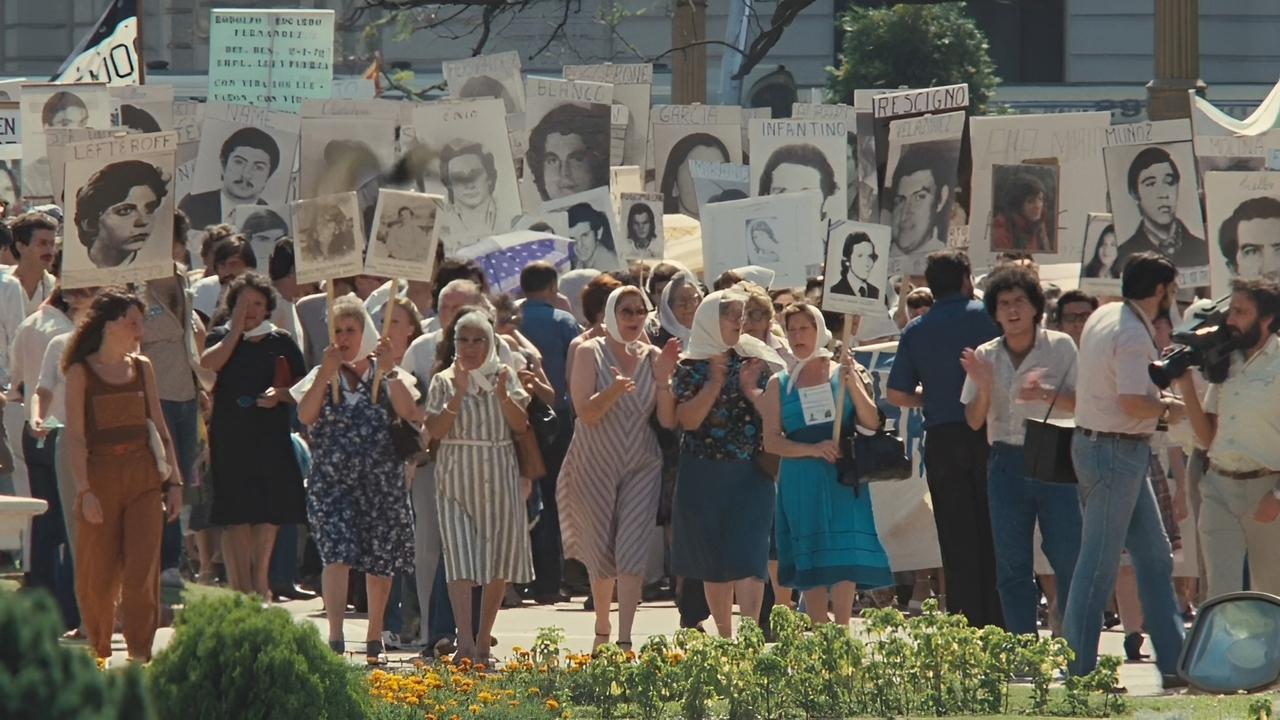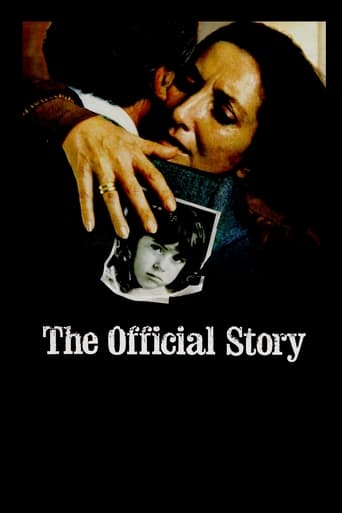



It’s an especially fun movie from a director and cast who are clearly having a good time allowing themselves to let loose.
View MoreA terrific literary drama and character piece that shows how the process of creating art can be seen differently by those doing it and those looking at it from the outside.
View MoreThe storyline feels a little thin and moth-eaten in parts but this sequel is plenty of fun.
View MoreThis is one of the best movies I’ve seen in a very long time. You have to go and see this on the big screen.
View MoreThe setting of this movie, took place in the 1970's in Argentina during the Dirty War. A high school history teacher named Alicia is oblivious to the disappearance of many people. She and her husband have an adopted five year old girl named Gaby. One day she arrives to her classroom, and finds pictures of missing people put on her chalkboard. She claims that this is a mean prank that her students have pulled on her. She tells a fellow colleague, and he tells her that they were not trying to be funny. Then she began to investigate the truth. She can't believe how oblivious she had been, and now wants to know the truth about what had happened to Gaby's parents. Watch it to find out!
View MoreI don't often quibble with some of the odd things the Academy of Motion Picture Arts and Sciences does (Grace Kelly's Best Actress win over Judy Garland in 1955 is a good example), but 1985's Best Picture winner is one of them. OUT OF Africa, uncharacteristically for a Sydney Pollack film, was a bloated and unbearably boring biopic of a woman who at the end of the day was just not that interesting, despite a valiant attempt on the part of Meryl Streep in the lead. If I had been given a vote, and had to choose only an American-made film, I would have chosen THE COLOR PURPLE.But I digress. The best picture that I have ever seen that was made in 1985 was that year's winner for Best Foreign Language film: Luis Puenzo's extraordinary debut film LA HISTORIA OFICIAL, better known to the English-speaking world as THE OFFICIAL STORY. For a first film, the director's hand is remarkably sure here; he knows the characters and the territory, and his handling of the actors produces what in the theatre is often known as "magic." The film stars Norma Aleandro (in a fierce, towering performance that should have earned her an Oscar) as Alicia Marnet de Ibañez, a history teacher at a Buenos Aires high school, married to a successful businessman (Hector Alterio), raising their adopted five-year-old daughter Gaby (Analia Castro), and living the good life, blissfully, and one suspects later on, perhaps deliberately, unaware of what is happening and what has happened to her country in recent years (the film takes place shortly after the "dirty war" in which many Argentinians were rounded up, imprisoned, tortured, and killed). At first glance it seems incredible that a history teacher could be so blind to recent events, but as one of her students observes early in the film, "History is written by assassins." Alicia sends the student from the room. But a seed has been planted. She attends a school reunion (I am not sure if it is high school or college; I suspect the latter, but in the end it makes little difference) and is reunited with her old friend Ana (Chunchuna Villafañe, who also delivers an Oscar-worthy performance), who has been living abroad, in exile, for the past seven years. Ana comes to Alicia's home for dinner; Alicia's husband Roberto is immediately suspicious and uneasy, but does his best to hide it. Later, after Roberto has gone to bed, the two women sit up talking and Ana reveals, in a devastating scene, the torture that she was subjected to because of her relationship with one of the "enemies of the state." During this confession, Ana lets slip that many of the torture victims were pregnant women whose babies were stolen from them and sold to wealthy couples in secret adoptions, to which Alicia reacts almost violently: "Why are you telling me this??" Ana does not answer, but the seed that has been planted is starting to grow, and despite her love for her daughter, Alicia feels compelled to find out how her husband went about adopting the child. The strength of her bond with Gaby is displayed in a long, silent scene in which Alicia takes from the closet shelf the clothing the baby arrived in and looks at it with tears streaming down her face. But what has been set in motion cannot be stopped.I won't reveal any more. This is an exciting film, magnificently acted, written, and directed, and Aleandro's performance is one of the best pieces of work I have ever seen by any actor, male or female, and it is all the more remarkable because so much of it is internal. The camera lingers on Aleandro's face during key scenes as conflicting emotions flash by, one after the other, revealing both her inner turmoil and her resolve to discover the truth at any cost.A winner all around. And it should have gotten the Oscar. For Best Picture for starters, and also for Aleandro and Villafañe.
View MoreThis movie is easily one of my favorite Spanish films. It is a powerful story of an awakening from ignorance and the pursuit the truth, not from one of the disappeared victims of the Dirty War that traumatized Argentina in the 1970's, but of a middle-class history teacher who unknowingly supports it. As the story unfolds, we learn more and more that those closest to her may have the most to hide, and we are made painfully aware that ignorance does not excuse us from our responsibilities to justice and humanity. The drama and mystery are thick, almost tangible, and will keep you enthralled until the last shocking, eerie moment.
View MoreI am from another country and I know very well what happened in Argentina 30 years ago. My country as well suffered from a similar history, but, with one difference, you preferred remembering all this cruelty again and again and calling the responsibles for account, we, on the other hand, preferred just forgetting what happened.There are no "Saturday Mothers" or Generals being tried in my country. What is more upsetting is that my country is on the brink of loosing its memory."History is the memory of a society." Mr. Puenzo, thank you for refreshing our memories. I wish the same for my country.
View More